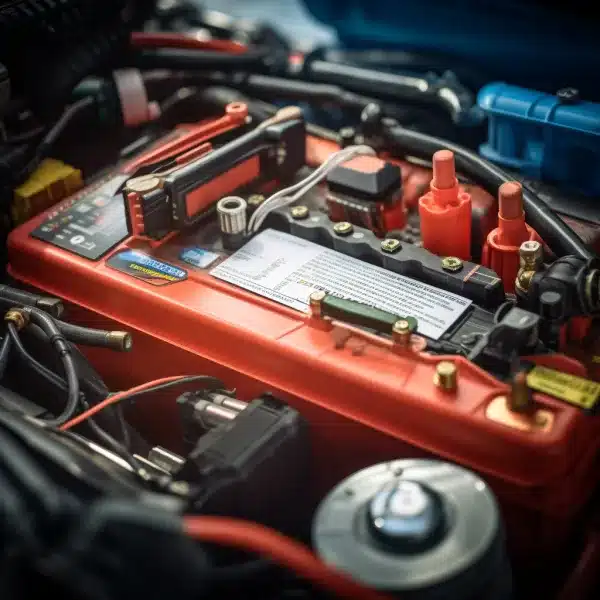A Comprehensive Guide to Caring for The Vehicle Battery Healthy
An well-maintained car battery is vital for making sure your vehicle operates reliably. Whether you are setting out for a extended road trip or simply using your car for daily commutes, overlooking your battery can cause disappointing situations, such as being not able to start your engine. Knowing how to look after your car battery not only extends its lifespan but also saves you money on replacements and lowers the likelihood of unexpected breakdowns.
In this guide, we will discover practical tips and best practices to ensure your car battery in top condition. From consistent checks to appropriate cleaning routines, you will find out how to spot signs of wear and keep your battery remains reliable and consistent throughout its life. A little care can go a long way in avoiding issues and having your car fit for the road.
Understanding Automobile Accumulator Fundamentals

A car power cell is an essential component of any vehicle, serving as the chief source of power energy needed to start the motor and operate various accessories. Most vehicle batteries are lead-acid type batteries, which consist of lead plates immersed in an electrolytic solution of sulfur oxide. This reactive reaction generates energy, allowing the automobile to operate. Understanding how your battery works is the primary step in guaranteeing its longevity and reliability.
Vehicle power cells have a finite lifespan, typically ranging from three years to 5, depending on utilization and environmental factors. Harsh temperatures, both hot and cold, can greatly affect battery performance. In warmer climates, the power cell fluid can disappear, while in colder regions, the battery may have difficulty to provide enough power for igniting the motor. Regular reviews and maintenance can help lessen these effects and prolong your power cell's life.
When it comes to vehicle accumulators, proper maintenance is crucial. Techniques such as maintaining the connection points clean, ensuring secure connections, and regularly inspecting the accumulator's fluid levels can prevent premature breakdown. Additionally, monitoring the power cell's charge level and choosing a automated charger during prolonged periods of inactivity can help preserve its performance. By grasping these fundamentals, you can take preventive steps to keep your vehicle accumulator in ideal condition.
Tips for Looking after Your Car Battery
Consistently checking your car battery is essential for maximizing its longevity. Begin by checking the battery posts for corrosion, which can hinder the connection. If you detect white, ashy deposits around the terminals, wipe them gently using a solution of baking soda and distilled water. This will assist maintain a secure connection and enhance the battery's performance. Ensuring the terminals clean and properly tightened can deter many issues down the road.
Temperature can substantially impact your car battery's performance, so it is wise to park your vehicle in a shelter or protective area whenever possible. Extreme heat can cause loss of battery fluid, while extreme cold can cause inefficient chemical reactions, reducing effectiveness. Additionally, if you live in a area with variable temperatures, consider investing in a battery wrap to keep the battery at an appropriate temperature during winter months.
Another important aspect of maintaining your car battery is making sure it stays charged. If yuasa battery take short trips, your battery may not have enough time to recharge. In such cases, consider employing a battery maintainer or trickle charger to keep the charge at an optimal level when the vehicle is not in use. Consistently starting the engine and permitting it to run for a while can also be helpful, as it allows the alternator a chance to boost the battery effectively.
Signs of a Dying Battery
One of the first signs of a dying battery is difficulty starting the car. If you notice when your engine is starting more slowly than usual or if it takes more than one attempt to start, this could suggest that your car battery is losing its charge. Keep an eye out for strange noises, such as clicks, which can also indicate that the battery is struggling to provide enough power.
Another warning is fading headlights or dashboard lights. When you switch on your ignition, the lights should be vivid and steady. If they flicker or appear dim, especially while the engine is on, it may be time to inspect your battery's health. Additionally, if you find that your electrical components, such as the windows or radio, are not functioning as well as they used to, your battery may be to blame.
Rust on the battery terminals is another significant indicator of battery trouble. If you see a chalky substance around the terminals, it could mean that the battery is corroding or that it is not making a solid connection. This erosion can impair the battery's ability to hold power, leading to further issues. If you notice these symptoms, it is essential to test your battery and potentially changed to avoid getting stuck.